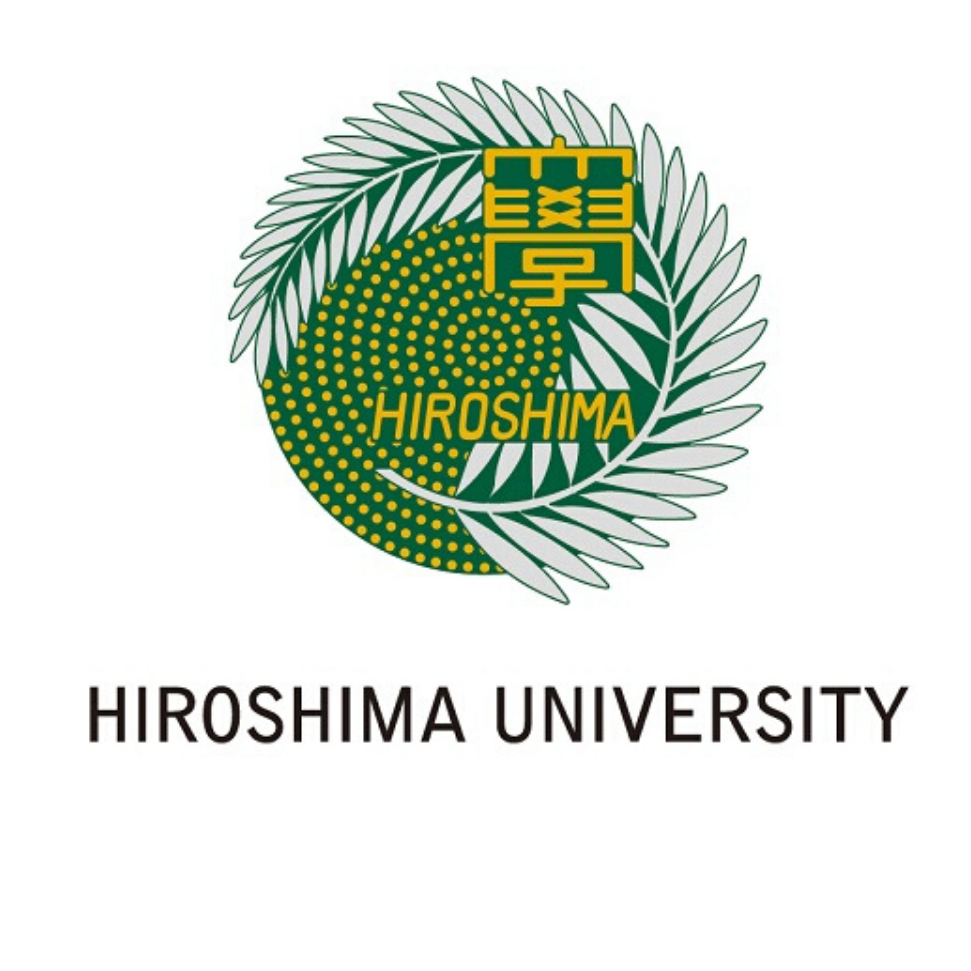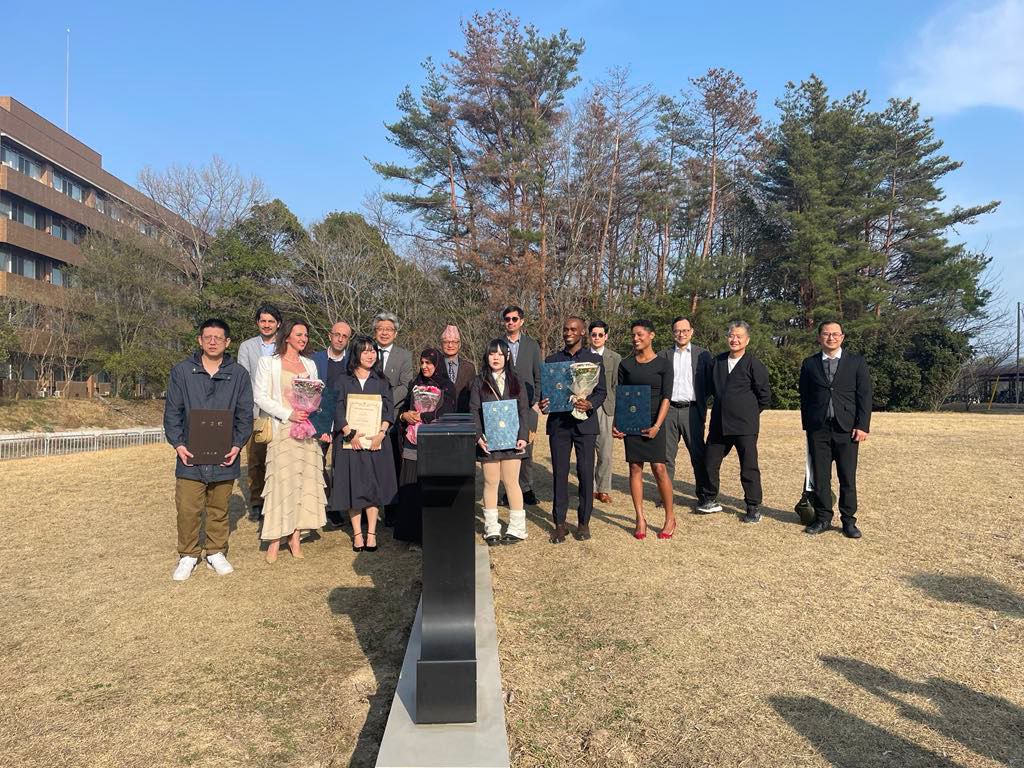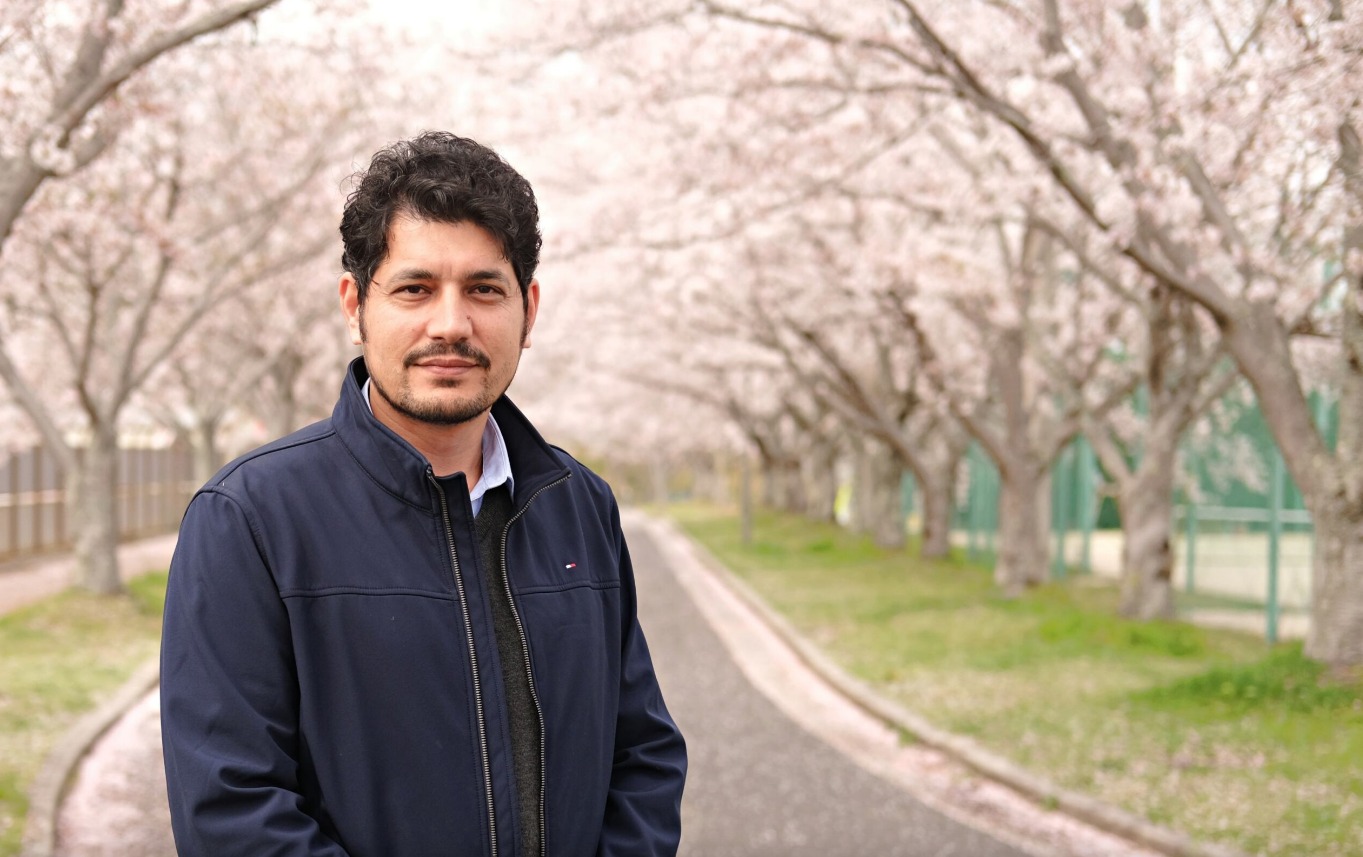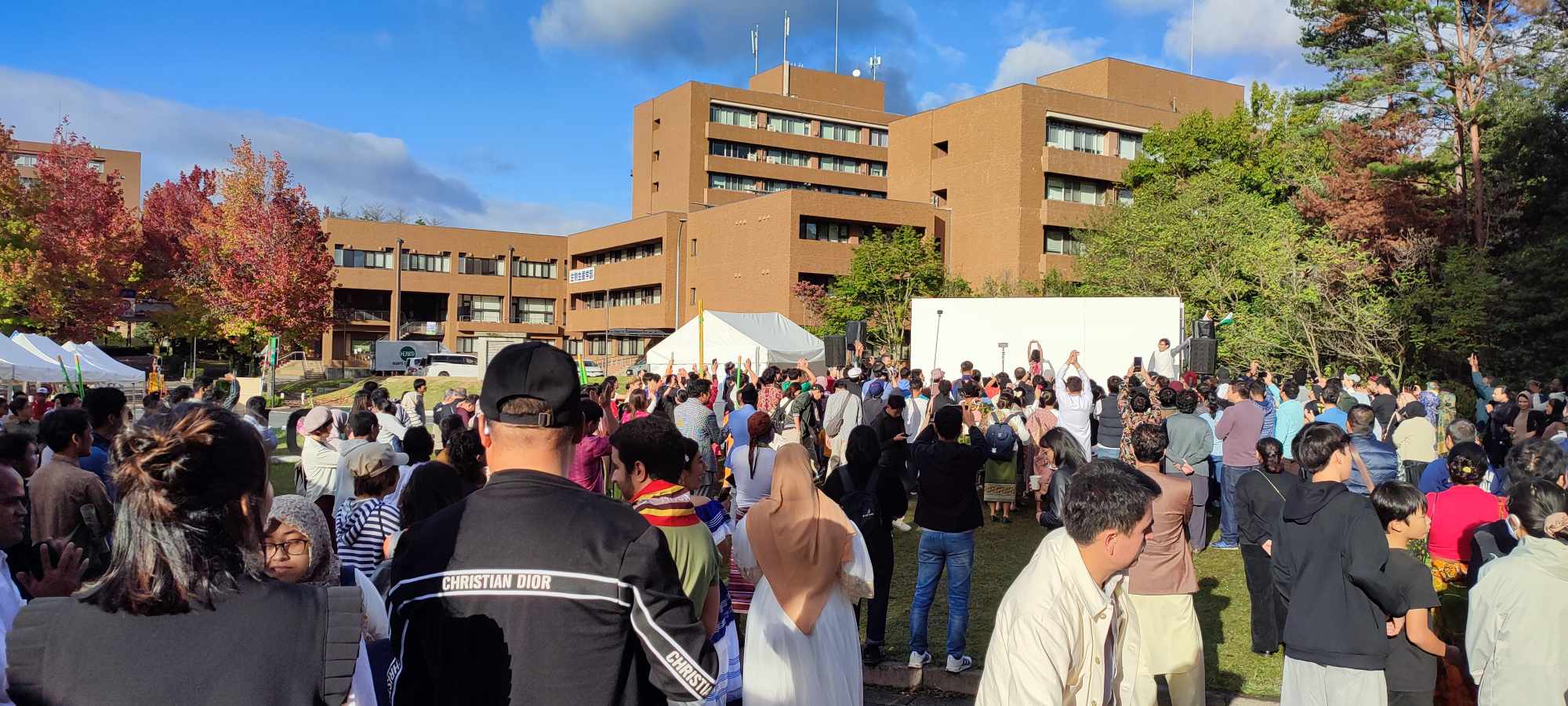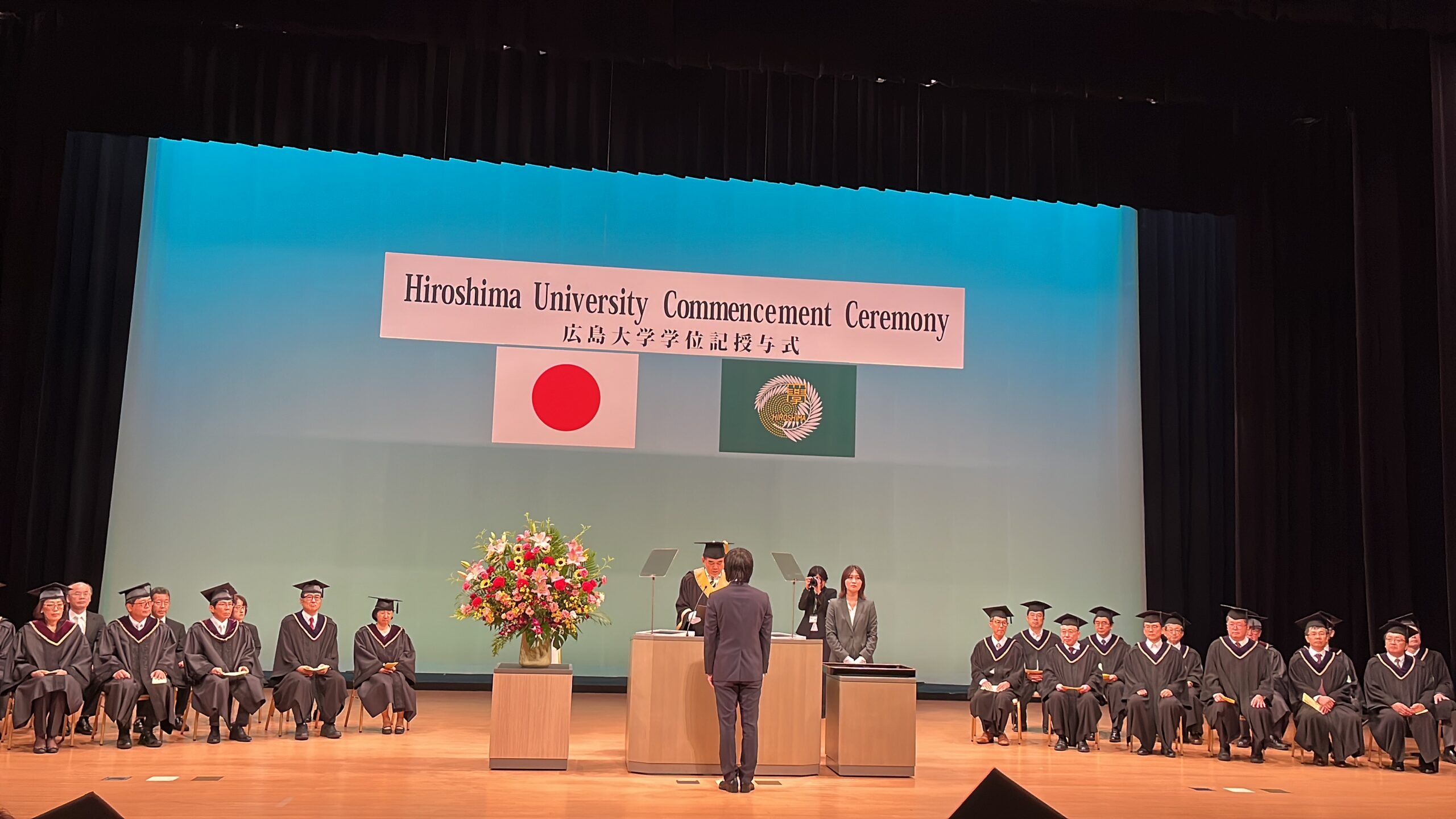What is it like for international students to study with us at IEDP? Assistant Professor Saijo interviewed several current students so that future and prospective students may have a better idea of what studying with IEDP is like, what they can expect, and what makes IEDP unique.
Profile 1: Anastaciah, Training Officer at the Agricultural Finance Corporation of Kenya
(JICA-JDS Scholarship, M1 MBA, graduating summer 2025)
Saijo: Thank you for joining us today. Could you tell us about your work at the Agricultural Finance Corporation in Kenya?
Anastaciah: Certainly. I work as a Training Officer there, primarily focusing on human resource management. My role involves managing human resources for the AFC, which provides credit to help farmers in my country.
Saijo: That sounds fascinating. I understand you’re also working on your dissertation. Could you share more about that?
Anastaciah: Yes, I’m interested in conducting a Randomized Controlled Trial (RCT) on Agricultural Extension practices, to causally identify the impact of the policy on farmers’ welfare.
Saijo: What drew you to the JDS program and specifically to IEconDP at Hiroshima University?
Anastaciah: The JDS program emphasizes human development, which aligns perfectly with my goals in agricultural development. Hiroshima University’s historical significance and its commitment to international cooperation, as I learned from the embassy, resonated deeply with me.
Saijo: How do you find our emphasis on causal inference in your dissertation project? Could you elaborate on that?
Anastaciah: Absolutely. Understanding causal relationships is essential in evaluating the effectiveness of key development programs, including agricultural extension. It’s a toolkit that’s applicable across various fields, not just in agricultural research. We want to know if the policies actually make a difference or not.
Saijo: How has your experience in IEDP influenced your perspective on international development?
Anastaciah: The IEDP program exposed me to a diverse range of courses, from public administration to HR management, alongside the methods training, which broadened my understanding of development economics. The international environment and interactions with people from various countries enriched my learning significantly.
Saijo: What aspects of the program did you find particularly beneficial?
Anastaciah: I found the data analysis and causal inference training that we received in the program particularly useful. I also found that we had a lot of freedom to pursue our dissertation research, while simultaneously getting a lot of advice on my research project from the faculty, who have experience internationally publishing empirical research.
Saijo: Looking forward, how do you envision applying your IEDP experience once you return to Kenya?
Anastaciah: I believe the skills and knowledge I’ve gained, especially in data interpretation and evidence-based decision-making, will be invaluable. They will enhance my ability to design and implement effective agricultural policies and programs.
Saijo: Lastly, what would you say was the most unexpected aspect of your time at Hiroshima University?
Anastaciah: I was pleasantly surprised by the diversity within the student body. I initially expected a predominantly Japanese cohort, but instead, I encountered students from all over the world, especially other JDS and JICA students who were civil servants from other developing countries. I don’t think there is any other place that brings together so many civil servants from all around the world.
Saijo: Thank you for sharing your insights with us.
Anastaciah: Thank you. It’s been a pleasure discussing my journey and experiences with you.
Profile 2: Evans, Human Resources at the Kenyan Revenue Authority
(JICA-JDS Scholarship, M2 MBA, graduating summer 2024)

Saijo: Thank you for joining us today. What did you find most useful about our curriculum?
Evans: I’d say that the emphasis and hands-on approach to causal inference and data analysis were the most useful aspects of the curriculum. Learning how different countries implement policies and practically evaluating their impact through causal inference is incredibly insightful. It equips government officials with the tools to move beyond simple correlations, allowing us to identify true cause-and-effect relationships. This way, we can make more informed policy decisions and ensure that our limited resources are directed toward programs that have a proven, positive impact on the public.
Saijo: You’ve mentioned the importance of peer-to-peer teaching and collaboration among students at IEDP. Can you elaborate on how this works?
Evans: Absolutely. I’ve benefited a lot from peer-to-peer teaching and collaboration. It’s the idea that no one is an island; we all have different strengths. Some students excel in coursework, some have better computer science backgrounds, others understand identification very well–everyone brings unique perspectives. By sharing knowledge and working together, we can teach each other how to do effective research and cover each other’s deficits.
Saijo: Our students are assigned to “labs” and work together on coursework and original research in the same room together. Students also participate in their advisor’s weekly seminars where students present and receive feedback on their ongoing research. What did you think about the seminar/lab setting?
Evans: Being in a lab setting is extremely beneficial. It provides an environment where we can deepen our understanding through practical experience and peer critiques. The Lab Seminar, for instance, is a fantastic setting for constructive feedback and collaborative learning. It goes beyond just causal inference; it encompasses research methods that are broadly useful for our future careers.
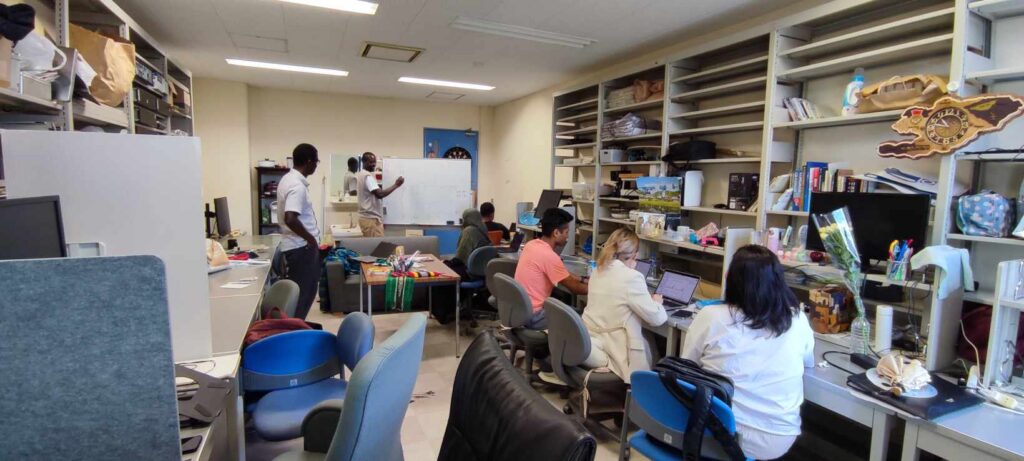
Saijo: Can you talk about the international perspective of the teachers and how it impacts your experience?
Evans: The international perspective of the teachers is quite enriching. A few years ago, there was a visiting professor from my country. It’s reassuring and comforting to meet faculty from your own country. Additionally, receiving instruction and feedback from faculty who publish internationally really helped me conduct my own research.
Saijo: How does our multidisciplinary approach benefit economic development?
Evans: A multidisciplinary approach is essential for economic development because it broadens our thinking and allows us to consider multiple sectors simultaneously. Economic development is inherently multidimensional, requiring us to solve problems across multiple areas like transport, natural sciences, and education simultaneously. Focusing solely on economics can be limiting, whereas integrating knowledge from various fields provides a more comprehensive understanding and better informs policy-making.
Saijo: Thank you for sharing your insights. I hope the skills you learned in our program can be put to good use once you return to your country.

